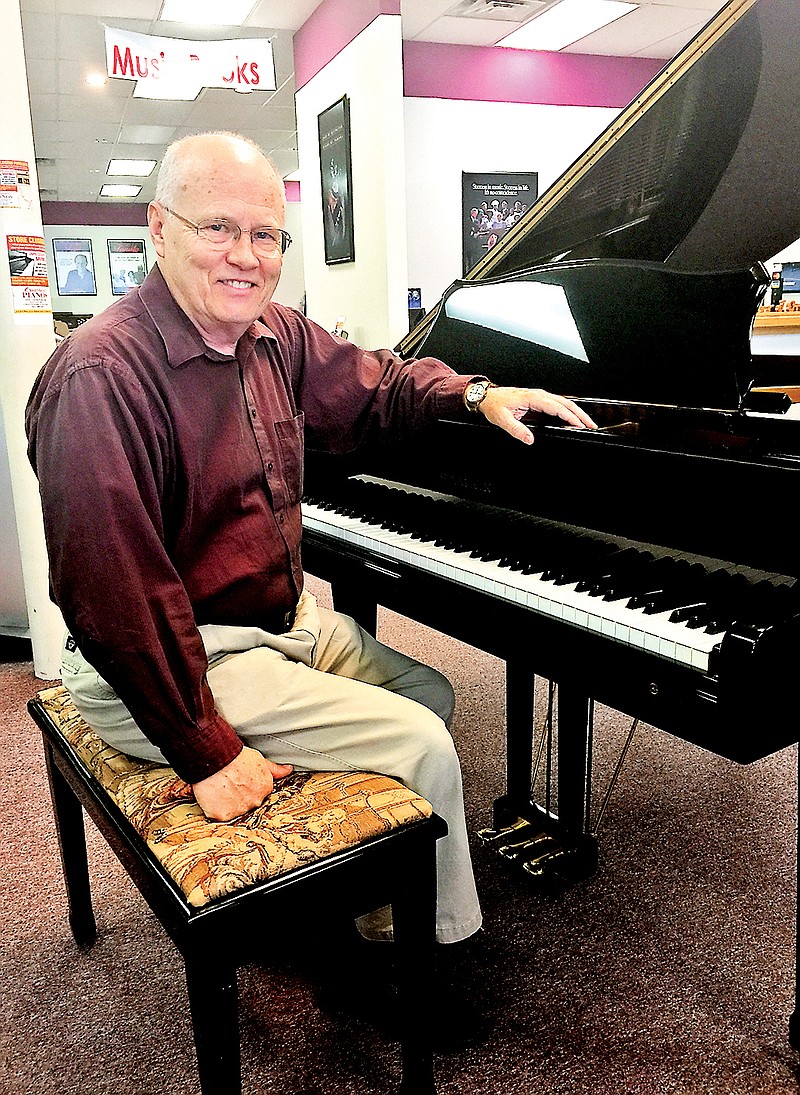In the last presidential election cycle there was a kerfuffle about whether businesses are people, too. Remember?
The question strikes me as pointless and reminds me of a time when two newspaper reporters got into an argument about whether fish are, technically speaking, animals.
"No, fish are definitely plants," I injected snidely.
Still, businesses do have something in common with people. They each have a story with a beginning, middle and, often, an end. And, like people, the story of a business's demise can be filled with sadness, if not remorse.
I guess I was looking for that kind of sad story when I cut out an advertisement in one of our community newspapers about a going-out-of-business sale at Crutcher Pianos on Lee Highway. I had visions of people out of work and pianos wheeled to the curb, unwanted and unplayed.
I discovered the piano store's story doesn't hammer into that formula. Still, the business's closing is interesting to me because it illustrates how macro-trends and simple factors such as location and signage play into the success or failure of a retail store.
Crutcher Pianos is located in a strip mall at the intersection of Highway 153 and Lee Highway. It's tucked between a lighting gallery and an appliance store. The store specializes in Yamaha pianos and Lowery organs, which, it turns out, aren't even called organs anymore but "virtual orchestras." (That reminds me of one summer as a college student when I sold Bibles door-to-door, only we were trained to call them "home religious libraries.")
There are a group of seniors who meet at Crutcher Pianos a couple of days a week to play the organs arrayed in a semicircle at the back of the store. They learn to play tunes such as "Raindrops Keep Falling on My Head," a B.J. Thomas song, and "Sherry" by Frankie Valli.
Most of the merchandise in Crutcher Pianos is marked down these days. The owner is hopeful of liquidating as much stock as possible before the doors close forever.
I spent some time Monday talking with Larry Otto, a former Southern Adventist University music teacher who now manages Crutcher Pianos and teaches organ classes there, as well. Otto explained that the store's original owner, Darrell Crutcher, sold the company years ago to an out-of-town businessman named Bill Jones, who owns several music stores in Knoxville. Despite the change in ownership here, the store name remained Crutcher Pianos in deference to the founding owner.
Otto says the store here in Chattanooga will be closing this summer, in part due to flat piano sales and also because it is located off the beaten path, while a major competitor has a highly visible storefront painted like a keyboard a few hundred yards away. (Meanwhile, Jones plans to open a bigger music store under his own name at another Chattanooga-area location in coming months, Otto says.)
The business model for keyboard-only stores has gotten rickety. The Associated Press reported earlier this year that piano sales in the United States have been in slow decline for more than 100 years. In 1909, according to the AP, more than 364,000 pianos were sold nationally. Sales of pianos today are about a tenth of that.
What's to blame? Probably the high cost of pianos and changing musical tastes. A grand piano can cost more than $30,000, while even a budget upright sells for about $5,000.
"A good grand piano from a respected name costs about as much as a luxury automobile -- and always has," Otto says.
Also, not as many children today take piano lessons, and the ones who do often start on less expensive digital keyboards. Others who are musically inclined have drifted to cheaper instruments, such as violins, to begin their training, Otto says.
Some industry sectors have small story arcs -- video stores, for example, seem to have come and gone in a single generation. Meanwhile, piano sales have endured across centuries, although business seems to be winding down. But that's how a dynamic economy works. Going-out-of-business sales are part of the healthy ebb and flow of commerce, as markets adjust to demand.
So Crutcher Pianos will close its doors soon. And a bigger, better store in a new location with a slightly different mix of merchandise will replace it.
Nothing to see, here. Please move along.
Contact Mark Kennedy at mkennedy@timesfreepress.com or 423-757-6645. Follow him on Twitter @TFPCOLUMNIST. Subscribe to his Facebook updates at www.facebook.com/mkennedycolumnist.

